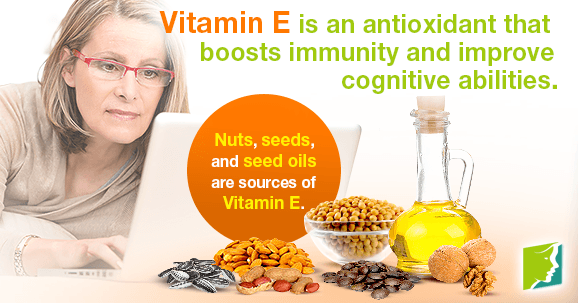Distraction, struggling to pay attention, and consistent procrastination could all be signs of concentration issues. Difficulty concentrating is a little-known menopause symptom that's most often caused by changes in hormone levels; during perimenopause, imbalances of estrogen and progesterone can obstruct various parts and processes of the brain, which can make absorbing, processing, storing, and wilfully recalling information difficult. While the primary cause of concentration issues is hormonal, certain factors, such as diet, can stimulate blood flow to the brain and enhance mental sharpness. Keep reading to discover the benefits of different vitamins for difficulty concentrating.
Vitamin B12
Difficulty concentrating is often exacerbated by fatigue, as excessive tiredness makes it a struggle for the brain to process and absorb information. Seven to eight hours of regular, restful sleep is the obvious solution for fatigue, but those who experience tiredness in spite of this may have a B12 deficiency. Vitamin B12 is required for proper red blood cell formation, and these are also the cells that transport oxygen around the body, helping to combat tiredness. Boosting your intake with B12 supplements - or injections, for those who are unable to absorb the vitamin - could enhance "awakeness" and improve concentration.
Vitamin C
Like most processes in the body, the cognitive functions are affected by the strength of the immune system. When the immune system is weakened by illness, medications, fatigue, or stress, concentration is likely to suffer as a result. Vitamin C enhances immunity through its antioxidant properties. Antioxidants neutralize potentially damaging free radicals, strengthening the entire body and its ability to fight weakness, disease, and infection. Increasing your intake of citrus fruits and leafy greens or taking a vitamin C supplement if you have a deficiency is likely to energize the body to help overcome concentration issues.
Vitamin E
There is evidence to suggest that vitamin E could be a fundamental vitamin for improving alertness. Some studies have found improvements in Alzheimer's patients' cognitive abilities after increasing their vitamin E intake. The vitamin is an antioxidant that boosts immunity, and many sources, like nuts, seeds, and seed oils, are also phytoestrogenic, meaning they can mimic the action of estrogen in the body to help regulate various symptoms of menopause that arise from a decrease in estrogen, such as concentration issues.
While diet plays a role in concentration difficulties, and increasing your intake of these vitamins may certainly help improve the symptom, the effects of these will be maximized when used in conjunction with a healthy, active lifestyle. Getting regular, restful sleep, participating in 30 minutes of moderate intensity aerobic exercise five times a week, and working on brain-training activities - such as reading, solving puzzles, and playing board games - are all likely to strengthen the cognitive functions and heighten your mental sharpness.
Sources
- Better Health Channel. (2011). Fatigue-fighting tips. Retrieved June 3, 2014, from http://www.betterhealth.vic.gov.au/bhcv2/bhcarticles.nsf/pages/Fatigue_fighting_tips
- Harrison, F.E. (2012). A critical review of Vitamin C for the prevention of age-related cognitive decline and Alzheimer's disease. Journal of Alzheimer's disease, 29(4), 711-726. doi: 10.3233/JAD-2012-111853
- National Institutes of Health. (2011). Vitamin C (absorbic acid). Retrieved June 3, 2014, from http://www.nlm.nih.gov/medlineplus/druginfo/natural/1001.html
- Office of Dietary Supplements. (2011) .Vitamin B12. Retrieved June 3, 2014, from http://ods.od.nih.gov/factsheets/VitaminB12-HealthProfessional/#h6
- Takatsu, H. et al. (2009). Effect of vitamin E on learning and memory deficit in aged rats. Journal of Nutritional Science and Vitaminology, 55(5), 389-393. doi: 10.3177/jnsv.55.389

